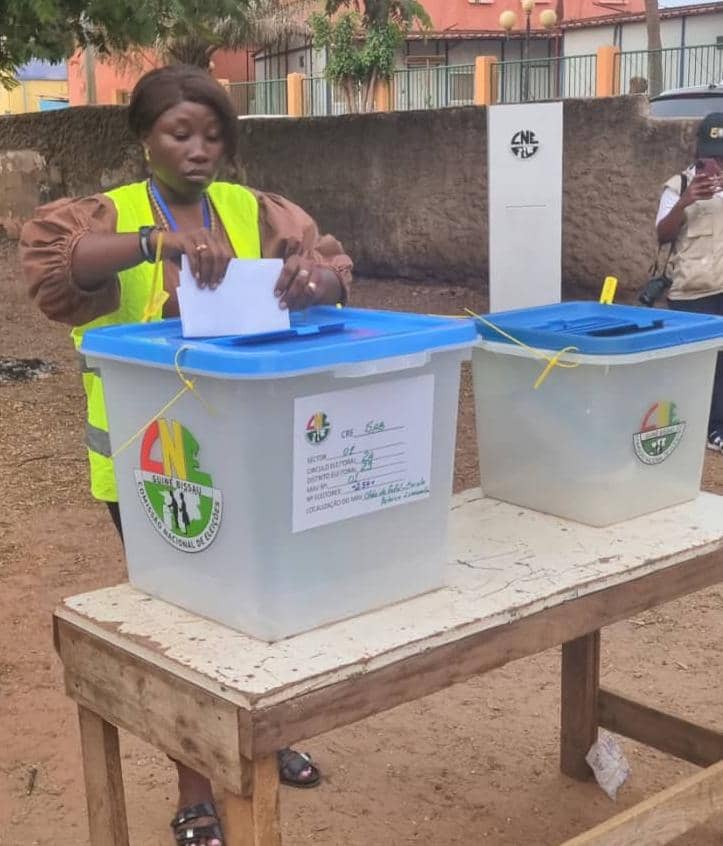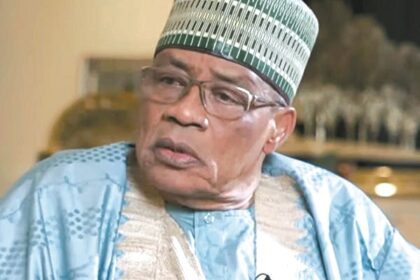Balloting kicked off to a slow start as Guinea-Bissau’s 966,152 registered voters queued to elect a President and 102 members of the People’s National Assembly or Parliament on Sunday, 23 November, watched by international observers, including from ECOWAS, the African Union and the Community of Portuguese-Speaking Countries (CPLP).
Among the 12 presidential candidates, the two front-runners, incumbent President Umaro Sissoco Embalo, who is seeking re-election and Fernando Dias, were among the early voters.
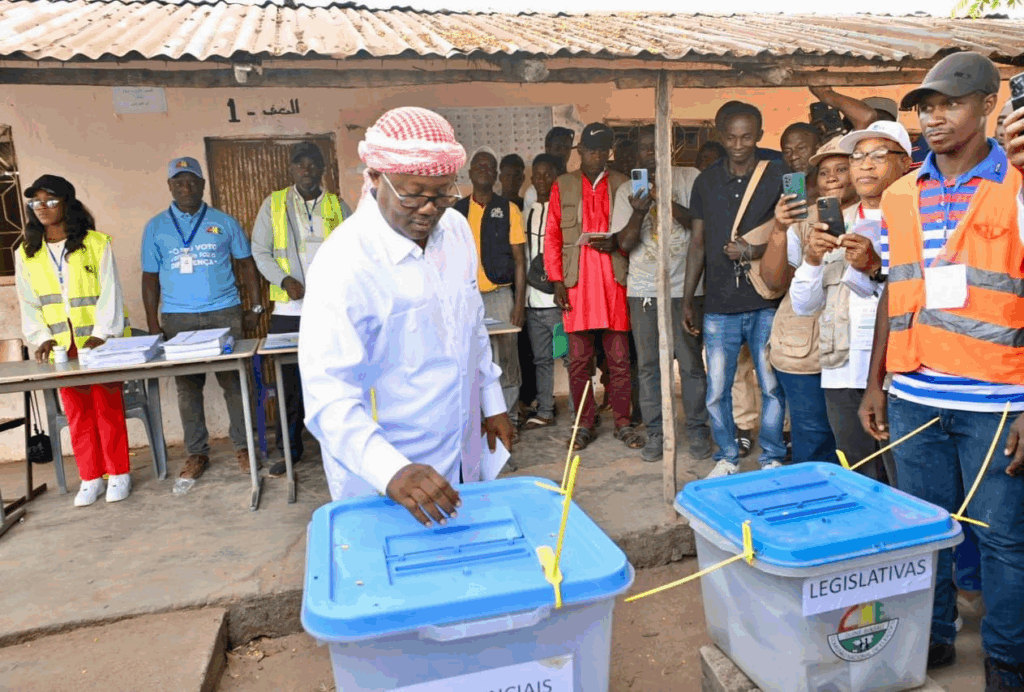
President Embalo casting his ballots in Guinea-Bissau’s Legislative & presidential elections on Sunday, 23 November
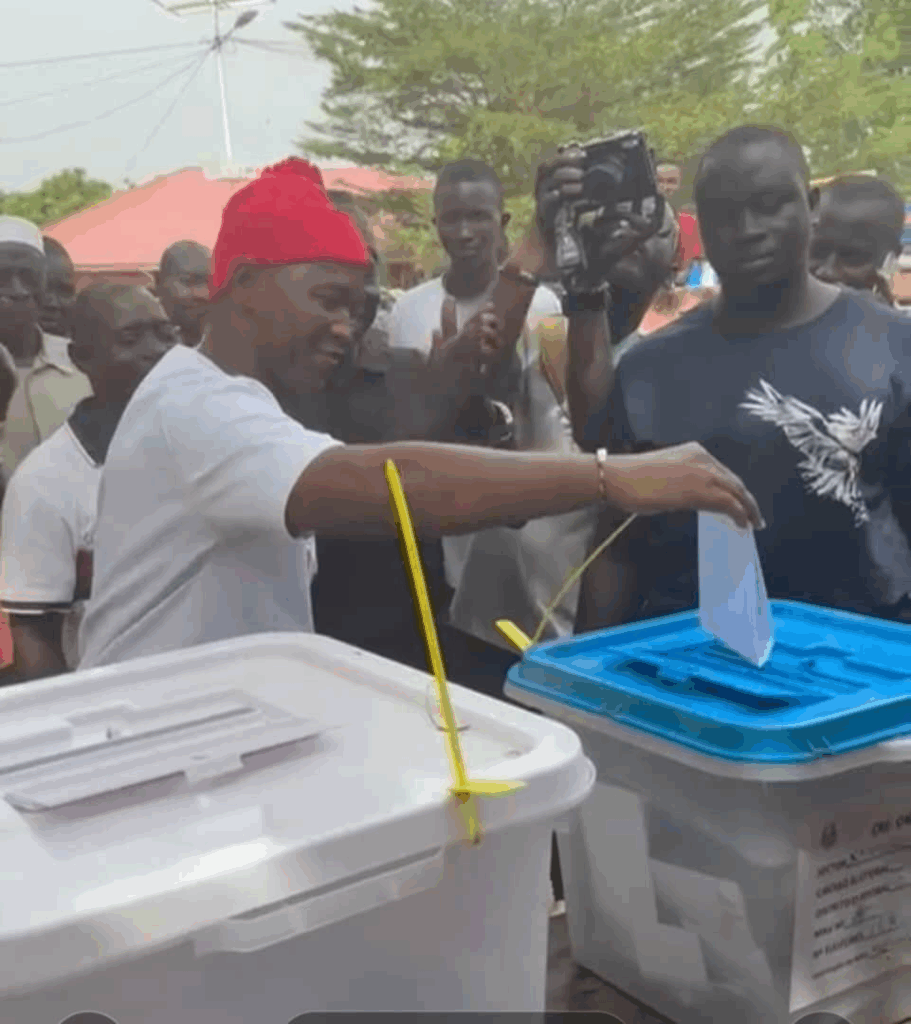
Opposition leader Fernando Dias casting his vote
Ambassador Baba Kamara, Head of the ECOWAS 135-member Election Observation Mission and his team arrived 10 minutes to 7h00 GMT, the official opening of balloting at the Ecola Patrice Lumumba Polling Centre, which has two polling units in the Chao de Papel district of the nation’s capital, Bissau.

Amb. Kamara and his team waiting at a polling centre for voting to start on Sunday in Bissau
National Electoral Commission, CNE, officials were ready with voting materials and police personnel were seated some distance from the electoral process.
After the opening formalities, Umaro Balde, the Presiding Officer of polling unit 01, was the first to cast his ballot at 07h10, at the Ecola Patrice Lumumba Polling Centre, in line with the electoral law, which requires polling officials to vote first before other voters.

Opening formalities
Ballots of early voters, security forces, who voted on 20th November, were verified and put in the ballot boxes before the first voter from the queue, 23-year-old Leandro Te, was processed to cast his ballot at 07h20.
By 07h50, ten of the 254 registered voters at that polling unit had cast their ballots as more voters arrived to join the queue.
It was a similar experience at the nearby polling unit 02 where nine voters had voted before 09h00 from the registered total of 217.
At the Praca/Baitto Setembo polling centre, also with two polling units, of 376 and 355 registered voters, respectively, 37 and 39 voters had cast their ballots by 09h10.
Field reports from ECOWAS observers were similar, with the process expected to pick up during the day.
Embalo and Dias had their agents in most of the polling centres visited.
Election officials confirmed that any voter on the queue by the closing time of 17h00 would be allowed to vote.
Ambassador Kamara also spoke with voters in the queue, urging calm for a peaceful and orderly election.
On his initial impressions, the Head of the ECOWAS Observation Mission said the situation was “encouraging” and “so far so good.”
He expressed optimism that the “people of Guinea-Bissau would be the ultimate winners” of the electoral process.

Ambassador Kamara also visited the ECOWAS Situation Room and will return to the field to observe the sorting and counting of ballots.
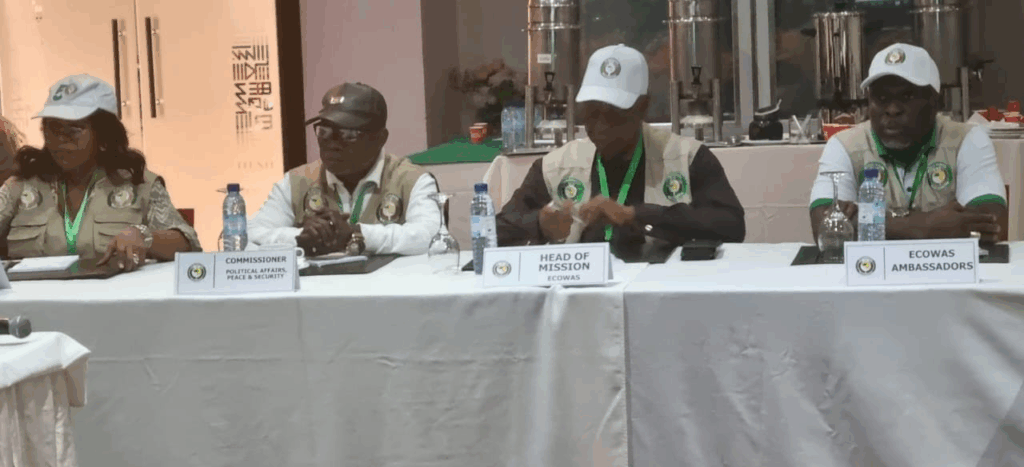
ECOWAS Election Situation Room officials brief Head of Mission Ambassador Kamara on activities from the field
He is accompanied on the observation tour by Ambassador Abdel-Fatau, ECOWAS Commissioner for Political Affairs, Peace and Security, who is leading the ECOWAS Commission’s team providing technical support to the Mission; Ambassador Ngozi Ukaeje, ECOWAS Resident Representative in Guinea Bissau; Ambassador Baba Jamal Ahmed, representing the ECOWAS Permanent Representatives Committee, Senator Edwin Snow of the ECOWAS Parliament and Mr Serigne M. Ka, acting head of the ECOWAS Electoral Assistance Division.
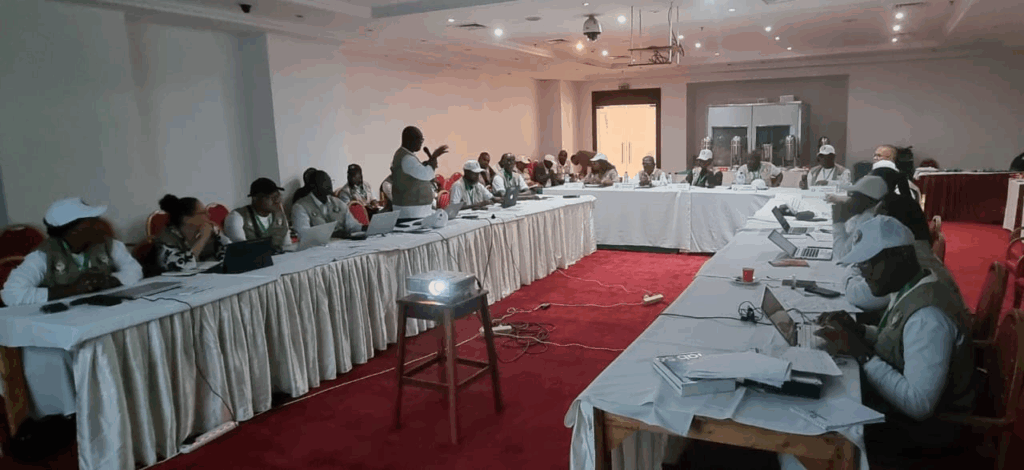
The CNE is expected to announce preliminary results of Sunday’s poll within 48 hours at the end of balloting, and the final results, within three weeks.
A candidate requires 50%+1 vote to win the presidency, failing which, the two front-runners go into a run-off vote after three weeks, while the legislative race is decided by a simple majority, with parliamentary seats allotted by proportional representation, under the country’s semi-presidential system where the President shares power with the Prime Minister.
![]()




